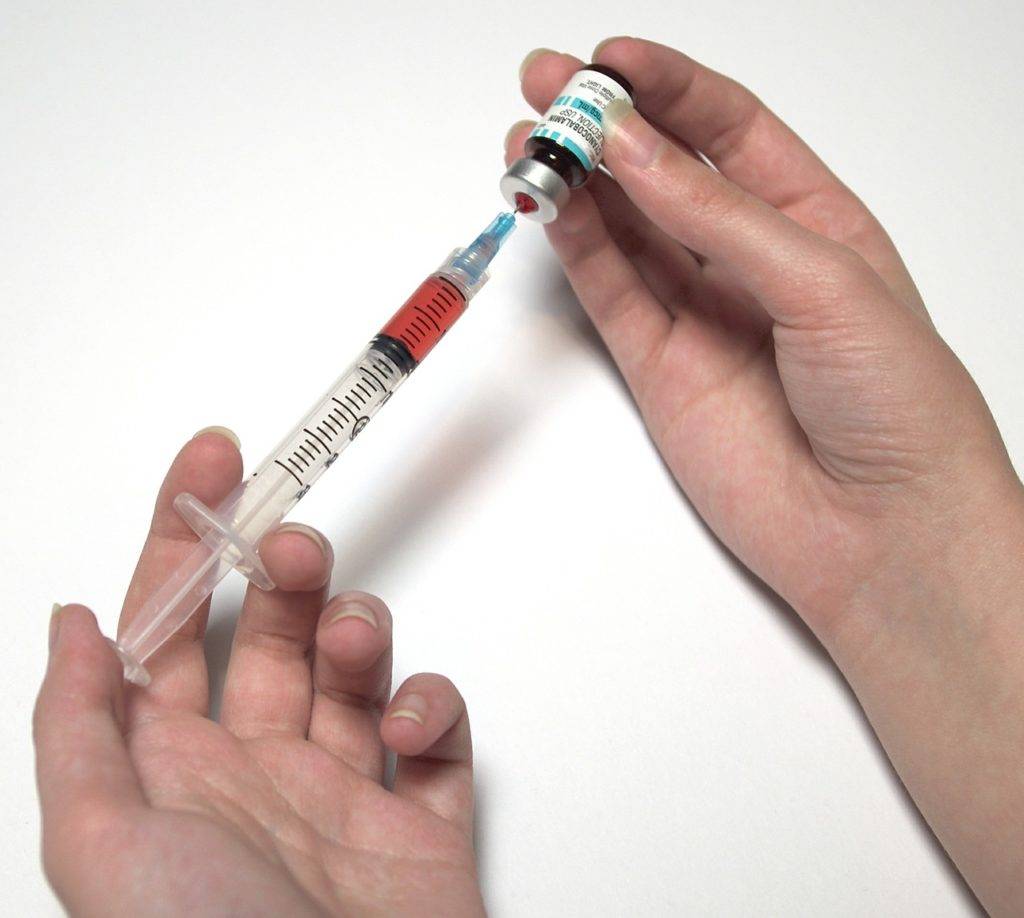The mainstay of contemporary public health is vaccination, which has a global impact on lowering the incidence of infectious diseases. The hepatitis B vaccine is notable for its substantial role in preventing hepatitis B, a potentially life-threatening liver infection caused by the hepatitis B virus (HBV).
Despite the well-documented advantages of the hepatitis B vaccine, some parents voice worries about possible side effects from administering the shot to their kids. This blog post aims to assist parents in making informed decisions by offering a fair and fact-based analysis of the dangers related to the hepatitis B vaccine for kids.
Hepatitis B and the Vaccine: What They’re All About
Hepatitis B Infection
Hepatitis B is a serious, even fatal, liver infection caused by the hepatitis B virus (HBV). According to the World Health Organization (WHO), approximately 296 million people had a chronic hepatitis B infection in 2019, and about 820,000 people die each year due to complications.
The complications are cirrhosis and liver cancer. The transmission is by direct contact with infectious bodily fluids, such as blood, semen, or vaginal fluids.
The Hepatitis B Vaccine
The scientific breakthrough of the hepatitis B vaccine primarily aims to prevent HBV infection. It’s administered as part of the routine immunization schedule for infants, with the first dose given at birth.
The vaccine has a non-infectious component, the surface antigen, that stimulates the body’s immune system to produce antibodies against HBV. This immune response helps protect the individual from future infections.
What are the Benefits of the Hepatitis B Vaccine?
- Chronic Infection is Prevented: The vaccination successfully prevents HBV infection and chronic hepatitis B, which can cause serious liver complications.
- Risk of Liver Cancer is Reduced: By preventing chronic HBV infection, the vaccine significantly lowers the risk of liver cancer, considered the most serious complication.
- Fosters Herd Immunity: High vaccination rates in the population contribute to herd immunity. This reduces the overall prevalence of HBV.
- Safety and Efficacy: This is backed by extensive research for over three decades, proven safe and effective.
The Potential Risks and Side Effects of the Hepatitis B Vaccine
Like any medical intervention, the hepatitis B vaccine isn’t free of side effects. Although it’s generally safe, comprehending the risks can help parents make informed decisions about vaccinating their children.
Common Side Effects

The common side effects are mild and temporary.
- Reactions at the Injection Site: There would be pain, redness, and swelling in the injected area. These should normally resolve on their own within a few days. This is a normal response as the body reacts to the injection.
- Fever: A mild fever may occur, which subsides on its own. Fever is a natural response of the immune system to the vaccine.
- Fatigue: Some children experience tiredness or general malaise for a day or two after receiving the vaccine. This should be resolved without any intervention.
Rare Side Effects
There are serious side effects, although they’re extremely rare.
- Allergic Reactions
Severe allergic reactions, such as anaphylaxis, may occur in about 1 in 1.1 million vaccine doses. This is a medical emergency that can be effectively managed by epinephrine treatment. It’s characterized by difficulty breathing, swelling of the face and throat, and a rapid heartbeat.
Anaphylaxis may occur a few minutes to hours after the vaccine shot, This justifies the need to stay at the vaccination site for a short period after getting vaccinated.
- Neurological Reactions
There have been isolated reports of neurological reactions, such as Guillain-Barré syndrome (GBS). However, studies haven’t established a causal relationship between the vaccine and GBS. It’s a rare condition affecting the nerves, being attacked by the immune system. The symptoms are muscle weakness and, sometimes, paralysis.
- Autoimmune Reactions
Some parents worry about autoimmune conditions potentially triggered by vaccines. Research doesn’t support a significant association between the hepatitis B vaccine and autoimmune diseases such as multiple sclerosis. This usually occurs when the immune system mistakenly attacks the body’s tissues.
Comprehensive studies conducted by the CDC and WHO haven’t found any credible evidence linking the hepatitis B vaccine to an increased risk of autoimmune diseases.
Weighing the Risks and Benefits
When considering the risks and benefits of the hepatitis B vaccine, let’s take a comprehensive view. The risk of serious side effects is exceedingly low, especially when compared to the risk of complications from HBV infection.
Hepatitis B Risks
Children are vulnerable to acquiring HBV when they aren’t vaccinated, leading to chronic infection. Infants and young children have a 90% risk compared to a 5–10% risk among adults. Chronic cases can result in severe complications, such as:
- Chronic Infection: A chronic hepatitis B infection can last a lifetime and lead to long-term health problems. It can silently damage the liver for many years before symptoms appear.
- Liver Cirrhosis: Chronic HBV infection can cause liver cirrhosis, a condition where healthy liver tissue is replaced with scar tissue, leading to liver failure.
- Liver Cancer: Chronic hepatitis B is a major risk factor for liver cancer, one of the most deadly types of cancer.
- Death: Severe liver disease caused by a chronic hepatitis B infection can be fatal. Each year, hundreds of thousands of people worldwide die from HBV-related liver disease.
Vaccine Benefits
The benefits of vaccination far outweigh the potential risks. The vaccine is over 95% effective in preventing HBV infection. By vaccinating children, we protect them from the immediate and long-term consequences, contributing to overall public health and reducing the burden of disease on society. Here are some benefits:
- High Efficacy: The hepatitis B vaccine provides strong protection against HBV, significantly reducing the risk of infection.
- Prevention of Chronic Disease: By preventing initial infection, the vaccine also prevents chronic hepatitis B and its severe complications.
- Public Health Impact: Widespread vaccination reduces the overall prevalence of HBV in the population, contributing to herd immunity and protecting those who cannot be vaccinated for medical reasons.
- Long-Term Protection: Studies have shown that the protection from the hepatitis B vaccine is long-lasting, with immunity persisting for at least 20 years and possibly for life in many individuals.
- Safe for Infants: The vaccine can be administered safely to newborns, providing early protection when they are most vulnerable to developing chronic infection.
To say it all, the comprehensive view of the risks and benefits of the hepatitis B vaccine demonstrates that the benefits far outweigh the risks.
The vaccine is effective in preventing a serious and potentially fatal disease, with minimal risk of severe side effects. Vaccinating children against hepatitis B is a crucial step in safeguarding their health and the health of the wider community.
Recommendations of Health Experts
Health organizations worldwide recommend the hepatitis B vaccine as part of routine immunization schedules for infants and children. These organizations include:
- World Health Organization: WHO recommends the hepatitis B vaccine for all infants, with the first dose given as soon as possible after birth.
- Centers for Disease Control and Prevention: The CDC recommends that all children receive the hepatitis B vaccine, starting with a birth dose.
- American Academy of Pediatrics: The AAP supports the universal vaccination of infants against hepatitis B to prevent perinatal and childhood HBV infection.
Addressing Parental Concerns
Parents play a crucial role in deciding whether to vaccinate their children. Healthcare providers should engage in open, respectful conversations with parents, addressing their concerns and providing evidence-based information. Omega Pediatrics at Roswell, Georgia is highly recommended to fulfill this noble task for parents.
Educational Resources
Healthcare providers provide parents with resources from reputable organizations, such as the CDC and WHO, that offer comprehensive information about the hepatitis B vaccine, its benefits, and potential risks.
Personalized Discussions
Discussing individual concerns and providing personalized information can help alleviate fears. For example, explaining the rigorous testing and monitoring that vaccines undergo before approval can reassure parents about vaccine safety.
Building Trust
Building trust between healthcare providers and parents is essential. A trusting relationship can encourage parents to follow recommended vaccination schedules and make informed decisions based on scientific evidence.
Ensure Your Child’s Hepatitis B Vaccine with Omega Pediatrics
The hepatitis B vaccine is critical in preventing a potentially life-threatening disease. While no vaccine is without risks, it has proven safe and effective, with the benefits far outweighing the potential risks.
By vaccinating children, we protect them from the severe consequences of HBV infection and contribute to the overall health of our communities. Parents are encouraged to seek worthwhile discussions with Omega Pediatrics and other reputable sources to make informed decisions about their children’s health.
The evidence overwhelmingly supports the safety and efficacy of the hepatitis B vaccine, making it a valuable component of routine childhood immunizations. Reach out to Omega Pediatrics to draw up your child’s immunization schedule.




